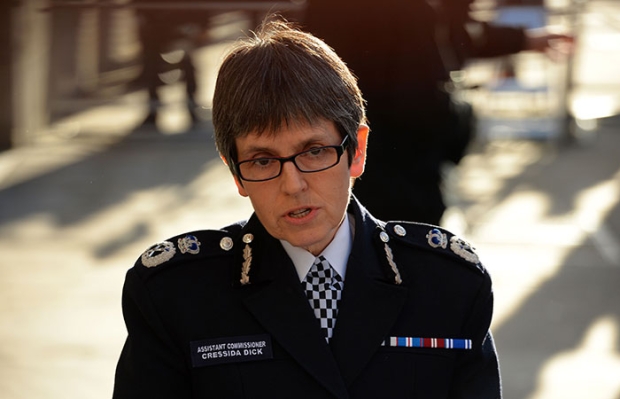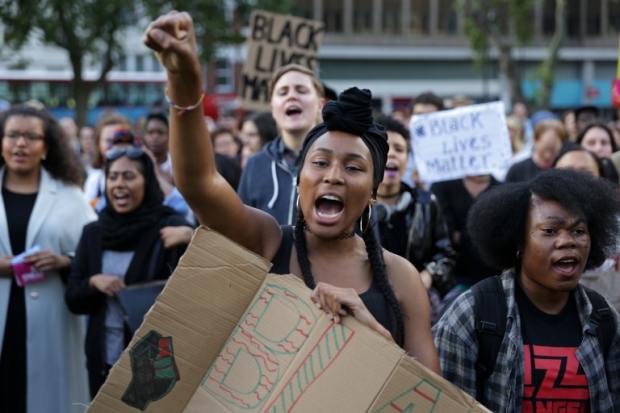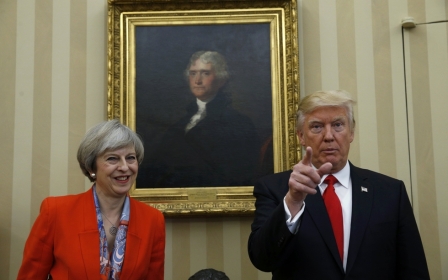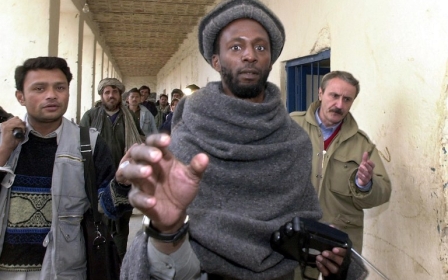Yes, another white man is UK's terror watch dog - but diversity is nothing without reform

Despite – despite – everything, I think most civil society activists working on the anti-terror laws and its concomitant baggage will miss David Anderson QC, the outgoing independent reviewer of terrorism legislation. At least, I assume the argument will go, you could (as many in Muslim civil society did) talk to him.
We need not a diversity of faces, but a diversity of thinking before better representation of minorities in positions relating to anti-terrorism becomes meaningful for the minoritised
He voiced concerns about Prevent – despite it being outside his remit. He looked to a more diverse future mooting independent oversight of Prevent that included Muslims in a meaningful way. He also opined about the whiteness of the regime, so it seemed, asking whether his successor might not be chosen from a more diverse shortlist. We don't know how diverse that shortlist was, but we do know that the white male lawyer, who had replaced a white male lawyer, was replaced by a white male lawyer.
As he leaves the stage and passes his role over to Max Hill QC, his outgoing comments, however, highlight that he was, at best, stuck in the populist paradigm that “something needs to be done”. It’s a re-enactment of a terrorism narrative of need. To be fair, the role itself is ring-fenced to the technicalities of a given, that is the right of the political class to enact ever increasingly draconian laws in the name of security.
London bomb plot prosecutor named as UK terror legislation watchdog
Without democratic discussion or any preceding serious enquiry, the "something" is effectively whatever the powers that be say it is. In this case, it is raft after raft of anti-terrorism laws, regardless of efficacy or need, and despite the alarm of academics and activists fresh - in the 1990s - out of the debased anti-terrorist regime levelled at the Irish community, and now deeply embedded in praxis regarding, and analysis of, Muslims.
'The something that must be done'
It’s ironic then that so many of Anderson’s concerns relate to Prevent, which is not really covered by this role. Anderson states: “Prevent is controversial, to the point where reputable community organisations refuse to engage with it. Suspicion has tainted it…Moves towards greater openness should be stepped up. Intervention criteria and training materials need to be published and debated, if standards are to be improved and rumours about discrimination dispelled.”
Why is it that we cannot accept even the meekest criticism of Prevent, let alone a meta-critique for the need or lack thereof of anti-terror laws?
The presumption ultimately is that "reputable community organisations" and Muslims per se have misperceptions about Prevent, which must be allayed. This is not critique. This is sadness that the something that must be done is not understood by those to whom the something must be done. It is all about wrong perception, not wrong law (somewhere, someone in the script is saying, “Justice must not only be done, but be seen to be done”).
It’s a frightening sign, if we choose to see it, that our political culture has shrunk to such a level that a human rights lawyer belittles the perceptions of a minoritised community in 2016, when even – even – a high court judge (Sir William McPherson) in 1999 (in the Stephen Lawrence Inquiry Report) understood that when a minoritised person perceived racism, this was enough for institutions to act upon the claim.
British MP says Trump should be referred to Prevent when he visits UK
Why is it now that we cannot accept even the meekest criticism of Prevent, let alone a meta-critique for the need or lack thereof of anti-terror laws? In this scenario, would diversity add anything meaningful to the position, its power or - wider still - the ever faster descent of British civil and political space into Stasi-state like paralysis? A Trevor Phillips of anti-terror might not be the right way to go.
Different faces, same narratives
Enter stage right Max Hill QC, in many ways more honestly a part of the establishment narrative than his predecessors. Even the Home Office press release boasts his less-than-independent credentials with his role for the prosecution in the "21/7" cases. His own chamber’s website highlights his involvement with, to “name just a few… the last IRA case in the UK, a series of Al-Qaeda and then ISIS terrorist trials from 2004 to date and all three trials resulting from the ‘21/7’ plot”.
As a part of the prosecution in these cases, he has literally taken the government of the day’s side. Maybe it’s a sign of things to come. Cressida Dick’s appointment this week as Metropolitan Police commissioner supposedly heralds a new and diverse age (not only is she the first woman to hold the post, but now all three top policing jobs in the UK are held by women).
Between Hill and Dick, there isn’t that much to choose from. Both are pillars (in practice) upholding institutional narratives by law enforcement. Of course, neither Hill’s chambers, nor the Home Office’s press release mention another of his cases as prosecutor. Described by outraged jurors as the “terror plot that never was”, the Ricin trial of 2005 saw five men - arrested in January 2003 for possessing "ricin" with a view, the press and prosecution claimed, to be used as a chemical weapon - acquitted of terrorism charges against them.
The media furore that followed their arrest not only hyped up the idea of an imminent threat from Muslims in the UK on a mass scale, but found its way into the narrative of, first, Tony Blair's justification for more terrorism laws and, then, Colin Powell's infamous UN presentation in the run-up to the Iraq War.
The case was so skewed that three of the jurors sought to expose the “misinformation that involved serious mistakes and incompetence by the authorities, including the suppression for many weeks of the fact that no ricin had been found during the police raids," one of the jurors, Lawrence Archer, and journalist Fiona Bawdon wrote in their book about the "terror plot that never was".The stance that the jurors took was unprecedented. They were appalled not just at what happened, but the fact that anti-terror laws at that time allowed for the men to be re-arrested and detained without charge, and the fact that their acquittal – instead of indicting the process that wrongly accused them – was seen by press, politicians and, as a result, the public as a wrong verdict.
Terrorism: A history of violence
What the case showed back then, and what many continue to say, Muslim or otherwise now, is that it is not the perception of those at the heart of the matter and on the receiving end that is skewed. It’s this frustration with the tightly held reigns of the narrative that pushed the Islamic Human Rights Commission (IHRC) to stop entering into consultations with the government on new anti-terrorism laws. Subsequently, IHRC and Campaign Against Criminalising Communities, along with several political and civil society figures and groups, called once more for the abolition of all anti-terrorism laws.
It is initiatives like this that seek to push open a space to look at what is happening, unencumbered by the need to do something first and ask questions later, and unencumbered by the white privilege requirement that we don’t challenge the prevailing structure.
Beyond diverse faces
Still, there is a sentimental feeling that we will miss Anderson. He highlighted that far-right referrals under Prevent had risen from 15 percent to 25 percent last year. It is both a justification in his mind of the project, but also a sympathetic sop to Muslims who rightly claim that political violence is not Muslim-specific. It sounds good or maybe even fair.
Clearly, a child who draws a picture of a cucumber clock can only be referred under anti-terrorism provisions to the police when those making that assessment are making it upon subjective, prejudiced views
But let’s break it down. Anderson focuses on the far-right referrals while also claiming that “Muslims with a grievance or a crisis of identity are recruited to the false certainties of violent Islamism. Increasingly, right-wing extremists such as Thomas Mair, the killer of Jo Cox, feed off the tension to plan violence of their own.”
It could just be poor wording, but it does sound like he predicates the rise of far-right violence on the much-discredited conveyor belt of Muslim "grievance", "identity crisis" and "violent extremism".
Ask the family and friends of Altab Ali, or any of the many (over a hundred that have been counted) murdered in racist killings since Stephen Lawrence’s murder. There was no such "tension" to incite the murderous activities of their loved one’s assailants, unless of course you mean that victim-blaming rhetoric held sway that day.
Move the focus a bit further out and see that the context of how three schools in South Yorkshire interpreted their Prevent duty as focusing on “singling out black and ethnic minority pupils… while suggesting white children are not at risk due to their skin colour”. This despite the fact that the English Defence League and the British National Party had traditionally enjoyed strong support in Barnsley.
This expose of practice suggests that the huge spike in Prevent referrals in places like Tower Hamlets of Muslims is not solely or even mainly based on substance but on unfounded fears.
We need then, not a diversity of faces but a diversity of thinking, before better representation of minorities in positions relating to anti-terrorism becomes meaningful for the minoritised. Exit stage left all hope until then.
- Arzu Merali co-authored the six volumes of the British Muslim Expectations of the Government series. She is one of the co-founders of the Islamic Human Rights Commission. You can follow her on Twitter @arzumerali.
The views expressed in this article belong to the author and do not necessarily reflect the editorial policy of Middle East Eye.
Photo: Alex Carlile QC, David Anderson QC, Max Hill QC (L-R) (Independent Review of Terrorism Legislation/Home Office)
Middle East Eye propose une couverture et une analyse indépendantes et incomparables du Moyen-Orient, de l’Afrique du Nord et d’autres régions du monde. Pour en savoir plus sur la reprise de ce contenu et les frais qui s’appliquent, veuillez remplir ce formulaire [en anglais]. Pour en savoir plus sur MEE, cliquez ici [en anglais].







